
We kindly inform you that, as long as the subject affiliation of our 300.000+ articles is in progress, you might get unsufficient or no results on your third level or second level search. In this case, please broaden your search criteria.

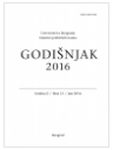
Over the last 15 years the political leadership of Turkey conducts a course of modernization of the country. Basically, this course reinforces the previous model of modernization and development of the Ottoman Empire and therefore it is called Neo-Ottomanism. The author reveals the peculiarities of the process of implementation of this model in modern Turkey and points to trends such as the strengthening of centralism and authoritarianism within the system of state power, secularisation of social life and expansionism in foreign policy. Paying special attention to the final thesis, the author tries to show the predominantly extroverted character of the Turkish model of modernization based on mobilization of the resource base of countries and regions that were once part of the Ottoman Empire. To this end, Turkey takes an aggressive foreign policy that includes direct support for international terrorism. Thus, the author seeks to actualize the potential risks and dangers that the policy of uncontrolled growth of pro-Turkish influence might bring to the countries of the Balkans, the Caucasus, the Middle East and Central Asian regions.
More...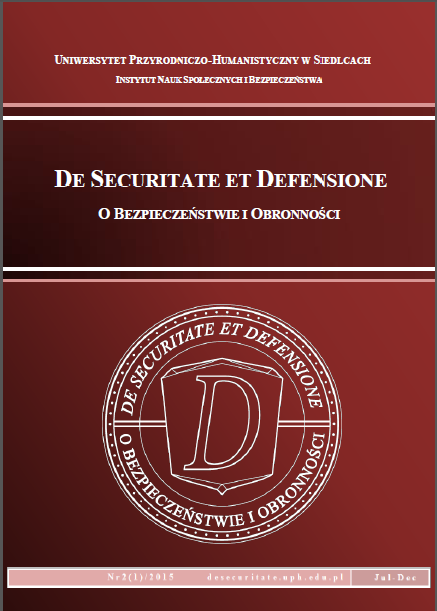
Es kann vermerkt werden, dass das Königsberger Gebiet zwar ein Teil Russlands ist, das Territorium dieses Gebietes sich aber schon in der Einflusssphäre der EU und der NATO befindet und von einem System internationaler Normativen reglementiert wird. In diesem Artikel werden die für das Königsberger Gebiet typischen politischen, ökonomischen und sozialen Strömungen erforscht. Es wird auch kurz die geschichtliche Entwicklung Königsberger Gebietes dargestellt und seine negative und positive Entwicklungsperspektiven analysiert. Es werden die Sicherheitsvoraussetzungen und die allgemeine Vertrauensmethodik der Zusammenarbeit erforscht, die für das Königsberger Gebiet unter den jetzigen Bedingungen der Ostseeregion europa- und weltweit angewandt werden.
More...
The paper wishes to analyze the situation of Catalonia after the proclamation of its independence in the light of the provisions of international law, but also of the current economic and social perspectives and influences on the European level, without political and sentimental influences.
More...
In order to see the dynamic of geopolitical and geostrategic connections between states, we have to analyze a large scale of elements concerning the geographical, political, military, demographical, economical etc. Between the marks analyzed we can find the strategical concepts and doctrines of the states who want to rearrange the political and geo-strategical maps of the world.
More...
The geopolitics is a field of science that explores various internal and external fac-tors of the country. Those aspect are economy, politics, social relations, resources, religious di-vision, natural disasters etc. Nigeria is a rich country in natural resources, growing in economic terms, which makes that country attractive for foreign direct investment (FDI). However, geo-political threats such as terrorism and lack of education among young people completely de-stabilizes the state. The main goal of this article is to explain the impact of geopolitics on FDI in Nigeria and the state development. The OLI and CAGE framework present the geopolitical threats affecting the internal chaos of Nigeria and FDI.
More...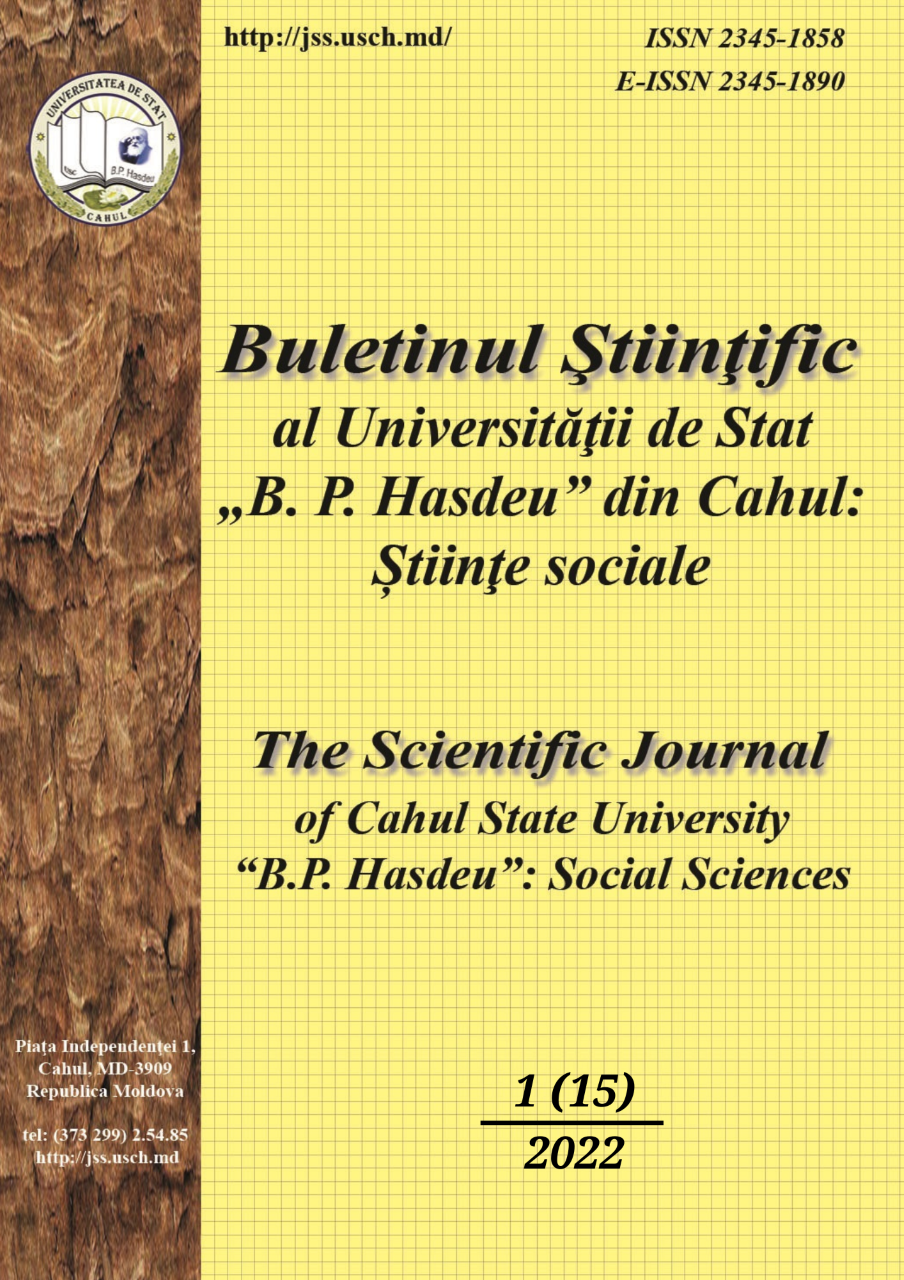
Kenneth Waltz, helped by David Singer, introduced the concept of levels of analysis, to explain international events, such as the war, from different points of view. In our presentation we are planning to follow the path started by Kenneth Waltz – which seeks to locate the source of the explanation of an event, phenomenon, process – and to analyse the possible causes of the outbreak of the ongoing war in Ukraine.
More...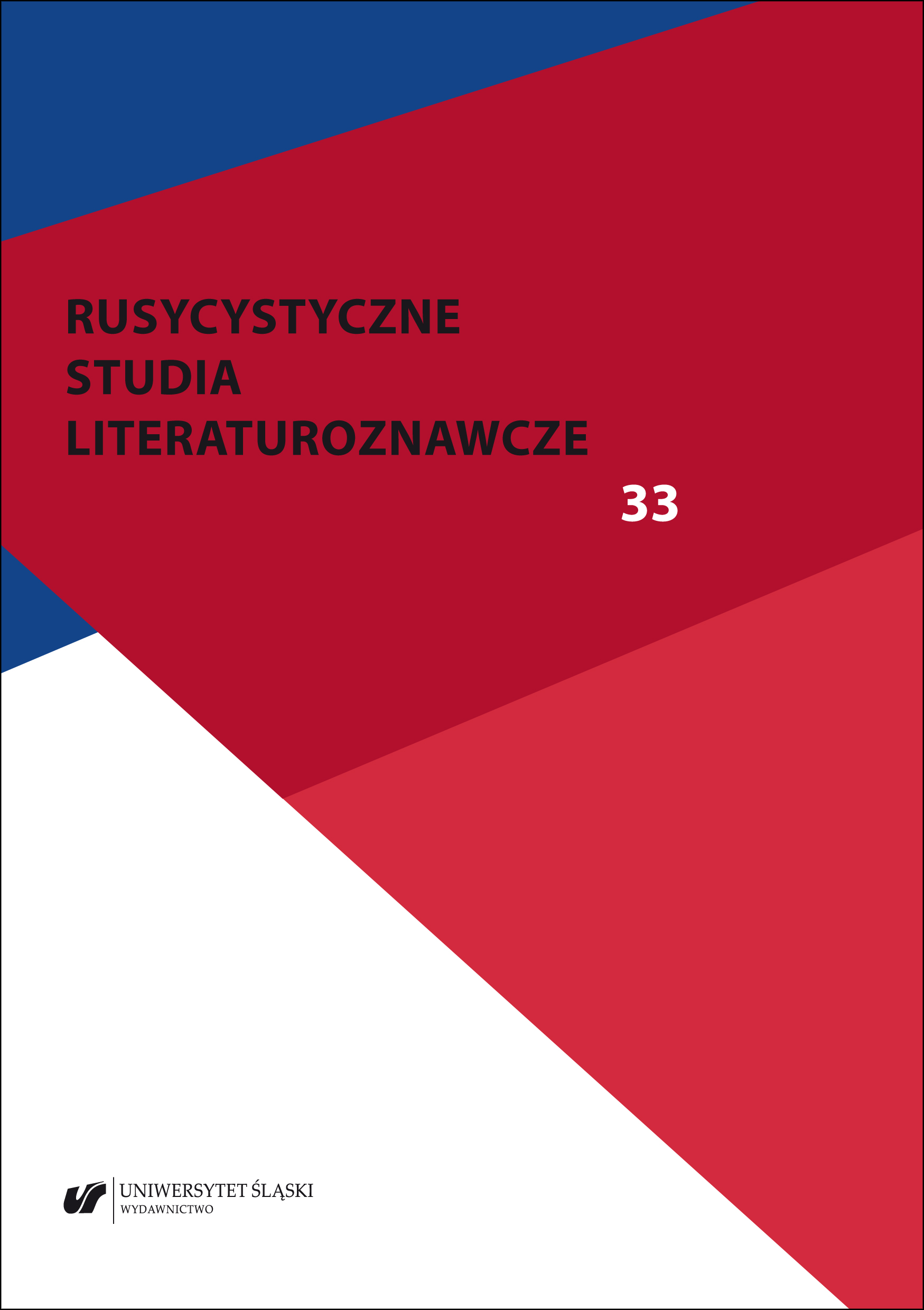
This article attempts to critically analyze the postcolonial aspects of the concept of the Other/Alien from the Polish point of view in the context of the Russian-Ukrainian war. In the (sub)consciousness of Polish elites, (geo)political discourse acts as a link between ‘postcolonial aspects’ and the war context. The author considers as postcolonial aspects those features of the Polish public debate that go hand in hand with resentment thinking. Although the inherent descriptive parameter of resentment consciousness is considered to be the binary category of Other/Alien, in the case of the Polish self-perception system it is more appropriate to speak of a trinary relational system (Poland — West — East). The entanglement of the Polish habitus in a trinary relation is not conducive to the process of status positioning in the world.
More...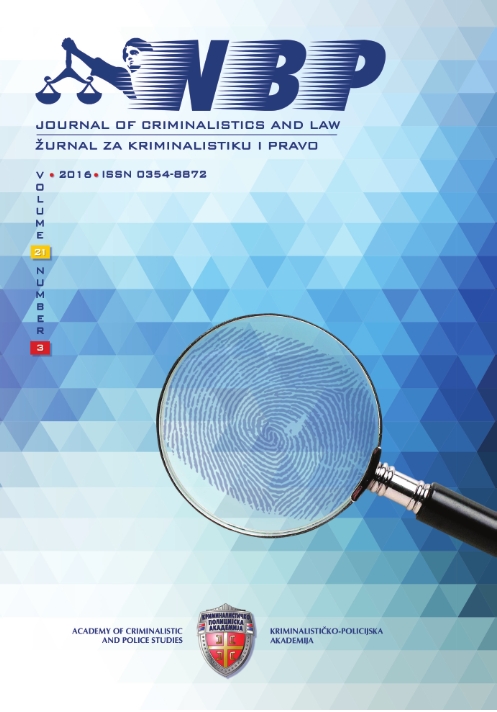
Nowadays more than 3,600 ethnic groups around the world seek to obtain a high degree of autonomy or to separate from the countries in which they are currently situated. The subject of analysis in this paper covers various similarities and differences between separatist terrorism in Northern Ireland and Spain. The paper aims to examine to what extent the assumptions about uniformity or dissimilarity of separatist terrorism in Europe are founded, especially in Northern Ireland and Spain as the countries where separatist terrorism persists for the longest period of time and where there are serious social and political problems. Using the content analysis and historically comparative methods, the paper determines that there is a series of similarities, but also differences between the separatist terrorism in Northern Ireland and Spain, whose main representatives are the IRA and ETA. Special focus is on those dimensions of separatist terrorism in these areas that turn them into a wider security challenge. The author concludes that, based on the use of adequate methods, as well as review of recent materials, the separatist terrorism in Spain and in Great Britain pose serious security challenge for these countries and Europe as a whole, not only in terms of current or increased danger of terrorism, but also because of the possibility of regional conflicts, especially in Spain. Therefore, no matter what differences there are between phenomenal forms of separatist terrorism in Spain and Great Britain, they have enough similar characteristics, and based on those the common European solution can be found for combating them.
More...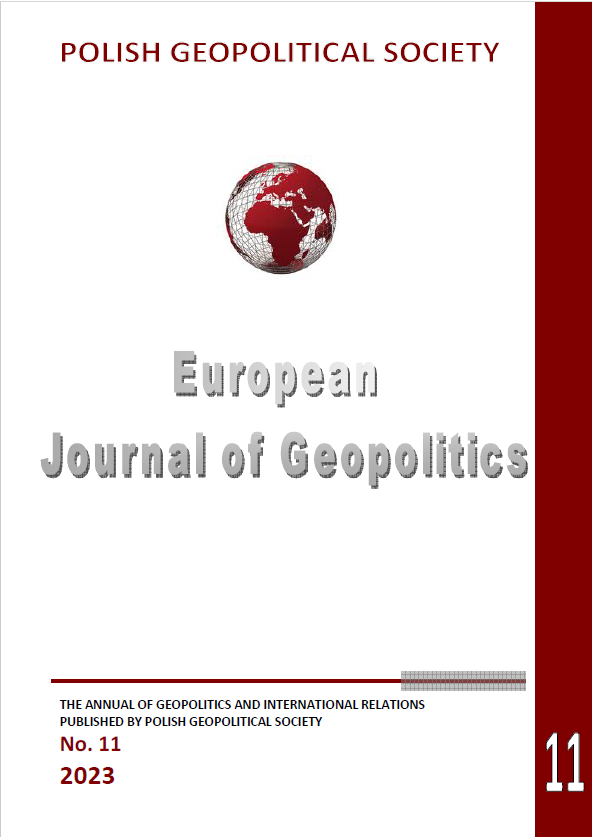
Article is deep analysis of situation, which is taking place in the west Africa, on example of Burkina Faso. Author outlined the background of situation based on geographical and political conditions. It is shown how coups has affected on Burkina Faso and what caused them. There are described relations between Burkina Faso, France and Russia. It is reveled and explained why Burkina turned to Russia, and consequences about that. The problem of jihadists attacks like: the siege of Djibo or attacks on Burkina’s capital Ouagadougou, why islamists were attracted to Burkina Faso, and results of these attacks were covered by the analysis. Article concludes with analyze of actual situation in this country and supposition what is going to happen in the future.
More...
We are witnessing the trend of relative economic and, consequently, political weakening of America and the West and a constant rise of the “rest of the world”, primarily China, whose economic growth, despite slowing down in recent years, is still three times faster than that in the EU and the US. Given that the strategies and policies of great powers, as well as of smaller countries like Serbia, depend on it, in this paper, we try to answer the question of whether the world is in the process of becoming bipolar, multipolar, or whether some form of unipolarity will persist. We start with the definition of polarity in neo-realist terms. We generally accept that after the end of the Cold War, there was a moment of unipolar US dominance, coupled with its hegemony, but this moment has largely passed. However, we are faced with the situation that there has been no clear emergence of either a new bipolar or multipolar order. We cannot argue that Beijing is the other pole of power since only the US has functional alliances that carry weight economically and militarily. And, if we are witnessing the emergence of multipolarity, that is the one that is still fundamentally asymmetric in America’s favour since Washington’s actions predominantly determine the main currents of global geopolitical processes. Thus, we claim that the global order is shaped as an unbalanced multipolarity, with the caveat that the role and strength of poles are in modern times considerably less important than before due to the processes of globalisation and economic interdependency.
More...
Geopolitical analysis of 2024 elections in Poland
More...
The stability of the international order primarily depends on the power relations between revisionist and status quo powers. The first are the bearers of changes in the character of international politics, while the second are the guardians of existing rules and practices. Rising powers seek to reshape the order constructed under the patronage of the existing hegemon. The paper explores the character of China's relations as a growing power towards the international order shaped at the end of the Cold War since Xi Jinping came to power. The theoretical framework is represented by the theory of balance of interests, primarily relying on the categorisation of revisionist states into the camp of “wolves”, irreconcilable opponents of the existing and bearer of new orders, and “jackals”, moderately powerful states focused on partial revisions of the current situation in the long term. The analysis works on two levels, systemic and state, indicating the specific positioning of China between the “wolf” and the “jackal”. From a theoretical point of view, it points to a possible new classification of a potential superpower striving for a long-term reshaping of the international order and avoiding sudden and premature risks.
More...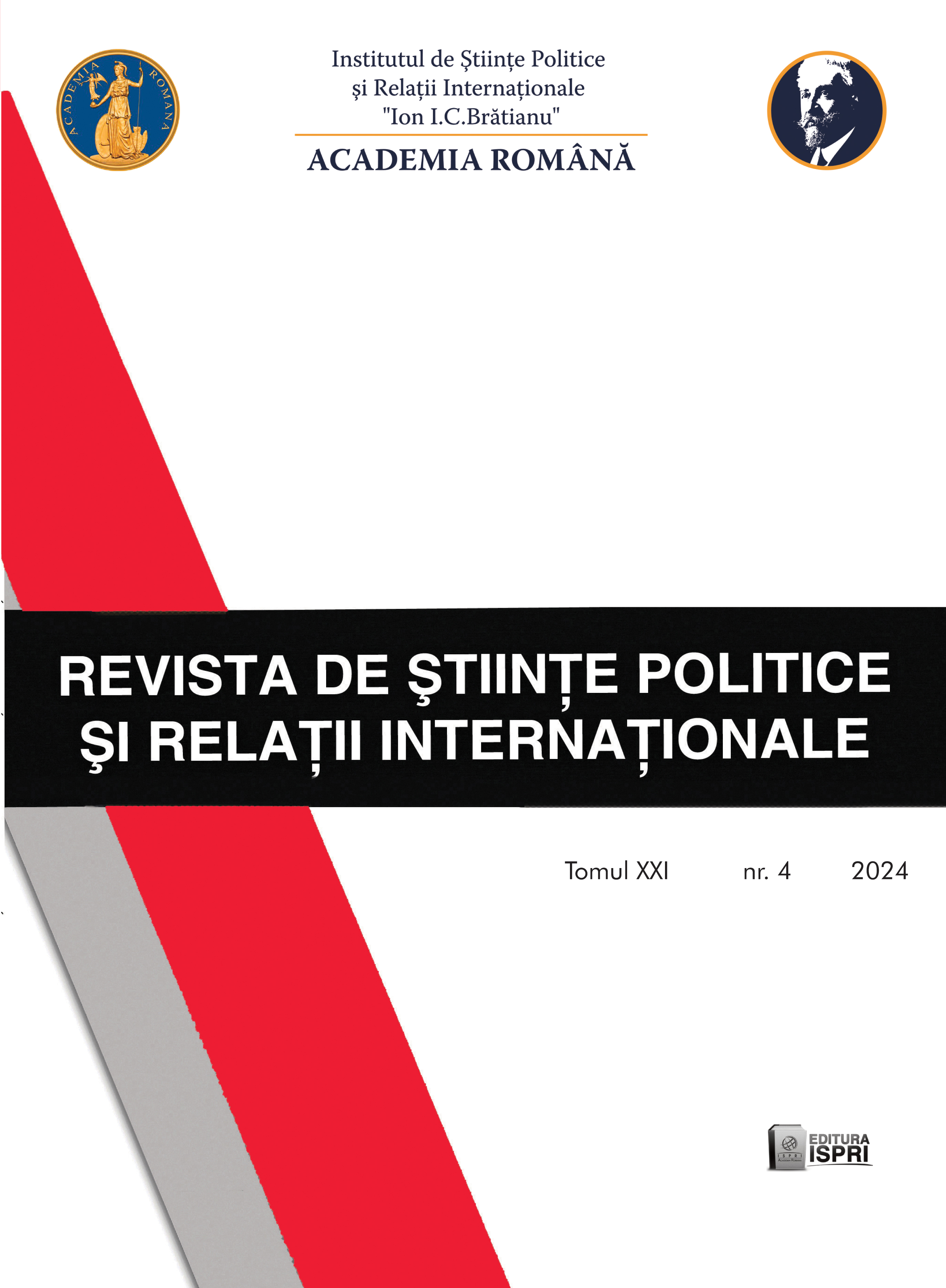
The article presents and reevaluates the great and old Romanian political debate: republic vs. monarchy. Starting from the central value of the concept of strategic positioning in a „symbolic geography“, it argues that, by restoring the constitutional monarchy after 1989, Romania and Romanians would have reintegrated much more easily and more durable into the European democratic order of which they had been part for centuries.
More...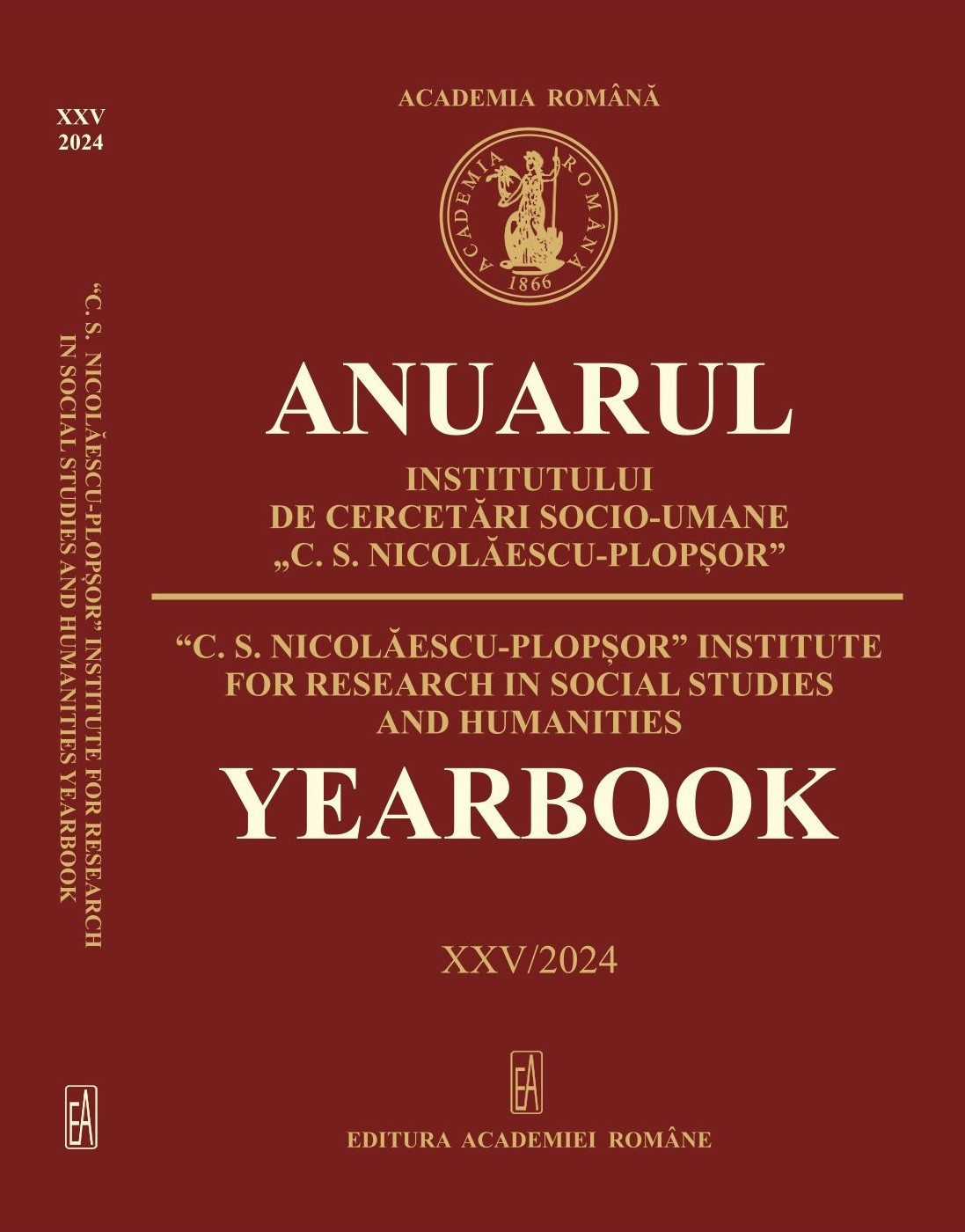
Supporting the European and Euro-Atlantic path of the Western Balkan states is one of the major priorities of Romania’s foreign policy. Romania’s status as an EU and NATO member country, as well as its proximity to the Western Balkans, require a special relationship between Bucharest and the states in this region. Romania, situated in the southeastern part of Europe, plays a significant role in the Balkan region due to its historical, geographic, and geopolitical importance. With its diverse cultural heritage and strategic location, Romania serves as a bridge between Central and Southeastern Europe. Historically, Romania has been intertwined with the Balkans, sharing cultural and historical ties with neighboring countries such as Bulgaria, Serbia, and Moldova. These connections have influenced Romania’s political and economic engagements in the Balkan area. Geopolitically, Romania is a member of the European Union (EU) and NATO, serving as a stable and secure partner in the region. It actively participates in regional initiatives and contributes to fostering stability and cooperation in the Balkans. Romania’s support for EU enlargement in the Balkans reflects its commitment to the region’s European integration. Economically, Romania’s strong trade relationships and investment in the Balkans promote economic growth and development, further solidifying its role as a key player in the area. Romania’s involvement in infrastructure projects and energy initiatives bolsters regional connectivity and energy security. In conclusion, Romania’s historical, geographic, and geopolitical attributes make it a pivotal actor in the Balkan region, contributing to regional stability, economic growth, and European integration.
More...
This article explores the evolution of geopolitics in the digital era, emphasizing how technology has transformed traditional geopolitical frameworks. Initially grounded in the physical characteristics of territories, modern geopolitics, influenced by digital tools, has shifted to a more intangible domain. The interconnectedness brought about by digital technologies has blurred the boundaries between internal and external state affairs, reshaping how geopolitical power is understood and exercised. As new technologies such as artificial intelligence, large datasets, and digital infrastructure gain prominence, they become new tools in global competition. While digital geopolitics democratizes participation, enabling individuals to influence international discourse, it also presents challenges, such as the potential misuse of these tools. Furthermore, the rise of digital geopolitics reflects a critical approach, where ideological and political phenomena are redefined through digital means. This transformation leads to the merging of traditional and modern power dynamics, making geopolitics more accessible but also more complex in terms of influence, representation, and global rivalry.
More...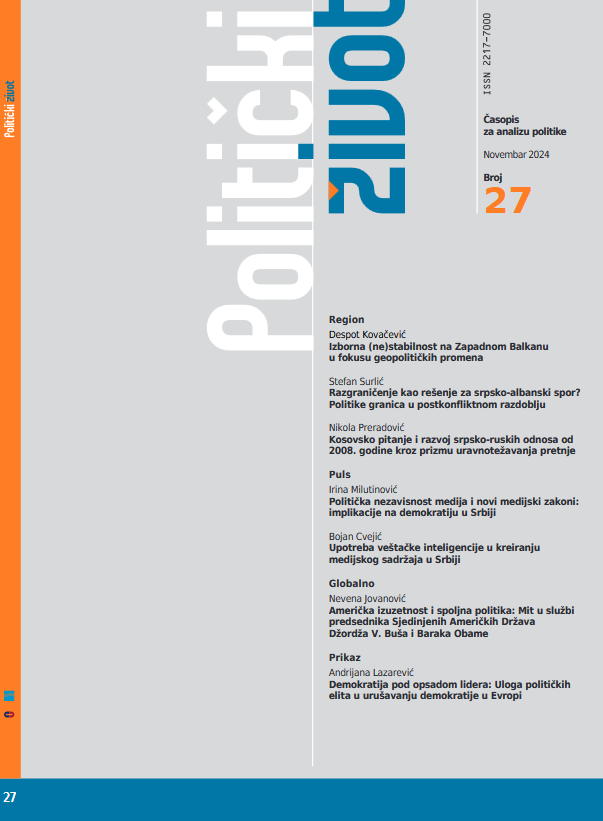
Despite the unilateral declaration of independence in 2008, the Serbian-Albanian dispute over the final status of Kosovo remains unresolved. Between the substantive autonomy proclaimed in the Constitution of Serbia and the full international recognition of Kosovo’s statehood, one of the proposed alternatives is the boundary demarcation between Belgrade and Pristina. Various scenarios for the delineation of borders are unified by the ethnic principle and “historical rights.” This analysis begins with the question: Why is partition or boundary demarcation presented as the dominant solution to the Serbian-Albanian dispute over Kosovo’s final status? Existing literature suggests that territorial division may prove more effective than broad autonomy concepts in societies burdened by the legacy of conflict. However, this paper will argue that, in the context of Kosovo, the politics of ethnic border delineation have not been supported by the population and carry with them a contingent future that could result in new population exoduses. The paper suggests that the enduring appeal of the idea of partition lies in the assumption of interethnic reconciliation, political and territorial satisfaction, the alleviation of national humiliation, as well as a tacit acquiescence to the declaratively contested independence of Kosovo.
More...
The paper investigates the different character, in the comparative perspective of the Balkan states, of Serbian-Russian relations since 2008, striving to identify the key cause of such development. In contrast to historical ties and energy dependence, components present in a number of other Balkan countries, the question of the status of Kosovo and Metohija as a threat to territorial integrity is identified as a key element, which traced the dynamics of those relations. From a theoretical point of view, the paper relies on the balance of threat theory as a suitable framework for contextualizing the formation of alliances in the case when important interests are threatened. The continuity of Serbian-Russian relations in the observed period, regardless of the change of government and geopolitical context, indicates the importance of balancing the long-term present threat. From a theoretical considerations, the paper draws attention to a strong balancing tendency for states facing a threat in the international system, even in a situation of great power imbalance of actors.
More...
This paper aims to research the myth of American exceptionalism as a mechanism for justifying the foreign policy decisions of American Presidents George W. Bush and Barack Obama. First, we will talk about the myth of American exceptionalism and its role in contemporary political life. Then we will put it in the context of the presidential mandates of the two mentioned presidents, and then we will give a comparative analysis in the concluding remarks. Mainly the foreign policy speeches of the two presidents are discussed. We will show that regardless of their different approaches to foreign policy, both Bush and Obama used the myth of American exceptionalism to ensure support for their policies, but also that due to different goals, they interpret the myth in different ways, adapting it to the desired meaning. Through the analysis of the discourse, we will see that both presidents are more inclined to an active American role in the world, but with Bush it relies primarily on “hard” power and unilateralism, and with Obama on “smart” power and multilateralism.
More...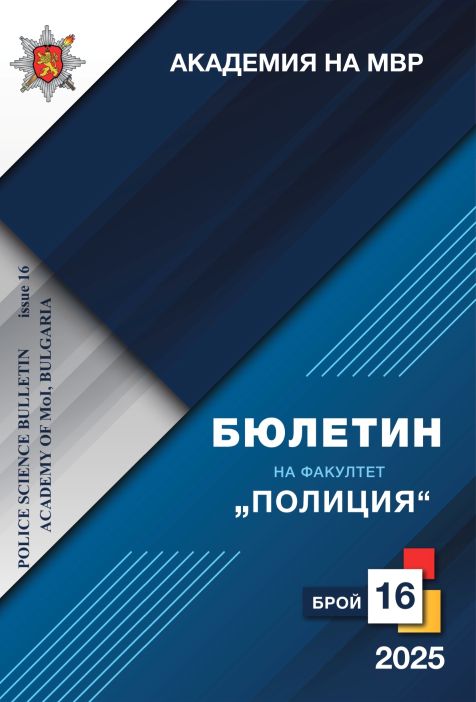
Some of the modern global processes undermine the trust in the ongoing progress of the contemporary civilization and the flourishing of culture. Along with the proliferation of weapons of mass destruction, the organized crime and the increased risk of ecological disasters, the terrorism is one of the biggest and most dangerous problems of our time. This phenomenon affects all countries, no matter of their national structure and economic progress, has a strong psychological impact, it destabilizes society and is causing huge political, moral and material damages. There are data that Islamic State (IS) has been preparing terrorist attacks in Europe since 2013. Numerous terrorist attacks have been inspired or directed by IS on the European Union (EU) territory. The most affected EU members are France, Belgium, Netherlands, Germany and the United Kingdom (UK). No single country is capable of effective counter-terrorism. Successfully countering terrorism is only possible by cooperative efforts of all EU Member States (MS) and the international community. In the years following 9/11, the EU has adopted fundamental instruments and measures in the field of counter-terrorism.
More...